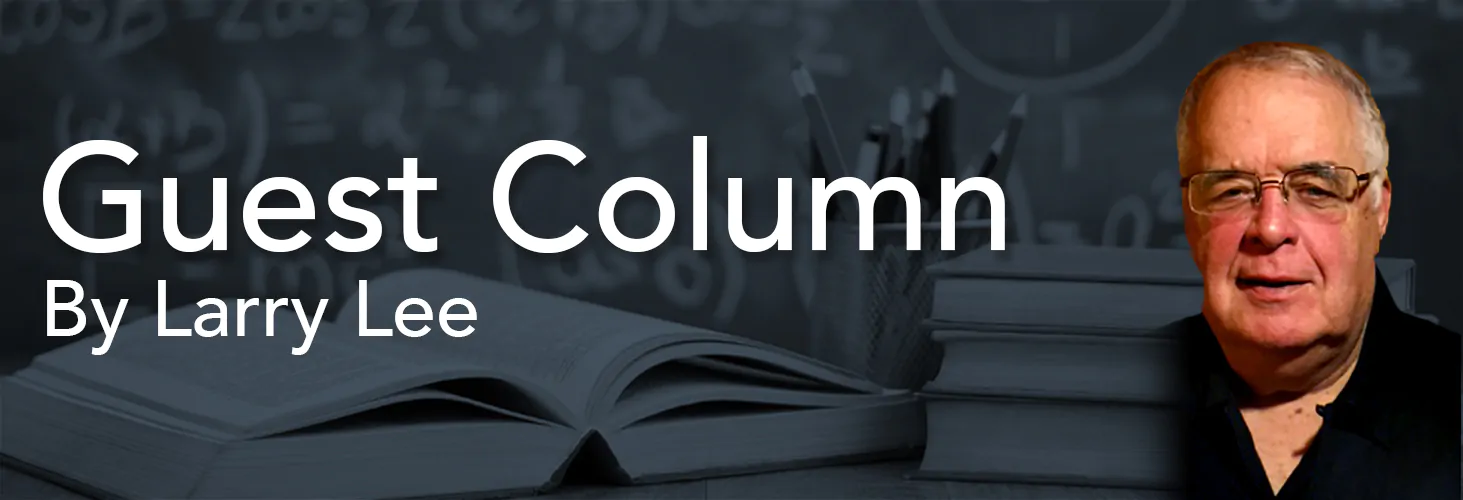EDUCATION MATTERS
By Larry Lee
Circles really do have a beginning and an end. But you cannot be in a rush to find them.
This particular circle began one Christmas years ago and ended recently at the cemetery across the road from Liberty Baptist Church in the southwest part of Bulloch County. About 15 years ago my son Kevin gave me a book, Conecuh People, Words of Life from the Alabama Black Belt. It was written by someone I had never heard of by the name of Wade Hall. At its heart the book is about someone’s search for themselves. A journey to better understand who were the people who shaped us and the things and people who made them who they were.
So nearly 40 years ago, Wade Hall set off on a venture that took him 15 years and countless trips from Louisville, KY back to Bullock County, AL to gather oral histories of family and friends. It was easy for me to relate to his stories of brush swept yards, outhouses, wood-burning stoves and women wearing bonnets and dipping snuff. All were vivid images from my own childhood visits to kinfolks in Covington County.
A few years later I got the news that this book was now a play and that a determined group of folks in Union Springs and Bullock County had acquired the use of the former Episcopal church in town, ordained it the Red Door Theater, and were set to perform. And on the last Saturday night in April 2004 I was sitting in a pew trying to stir the air with a funeral home fan and watching the book come to life. There was his mother, who he called “Babe” and the grandmother “Mama. A teacher from Inverness school, a moonshiner and Elma Lee Hall, snuff and all.
I went every spring because in reality, I was going back to Covington County, instead of Bullock. And I got to know Wade Hall, a truly interesting man who turned out to be Dr. Wade Henry Hall, Jr. author, collector and professor emeritus of English at Bellarmine College in Kentucky. A man of letters from the unlikely settlement known as Hall’s Crossroads. (But then, who might imagine Georgiana giving the world Hank Williams?)
The middle of the Great Depression was not necessarily a good time to chose to be born in rural Bullock County. But such was Wade’s lot. By the time he finished high school at age 16, Wade had enjoyed all the wood cutting and picking cotton he cared to and intended to get as far away as he could. Books and teachers and classrooms where his way out and he enrolled at Troy State Teachers College. Over time, with detours to teach school in Opp and serve in the Army in Germany, Wade got his doctorate at the University of Illinois and settled into the life of an academic in Louisville.
In addition to his time as a professor, Wade was a prolific writer and authored and edited a number of publications. But he never got Hall’s Crossroads out of his DNA. Nor did he want to. And while his education gave him the opportunity to rub shoulders with literary greats, he came to know that plain and simple lives have a nobility all their own. He says in Conecuh People, “Now I know that I am truly my parents’ son and the product of the school and church and community that for sixteen years stamped me indelibly and shaped me into the man I was to become.”
There is a wonderful lesson in this statement that too few heed today, especially some who wish us to call them “leaders.” It is simply what good folks in Bullock and Covington counties mean when they caution someone to not get above your raising.
Wade came home in 2006. Back to remaining family and friends. Back to distant memories. Ones that will forever live in Conecuh People.
Now he has made his final visit to Liberty Baptist Church and the cemetery where this community has buried its loved ones for more than 150 years. I was there when Wade Henry Hall, Jr. was laid to rest next to his beloved mother, Babe. In a speck of land scattered with the graves of so many he learned from as he wrote his book.
His was a rich and full life. Made possible by the love for books and teachers and classrooms. And fed by a curiosity about those all around him who taught him how to live and what is honestly important.
As I drove away from the little brick church founded in 1837, the words to the old hymn Will The Circle Be Unbroken ran though my head. And I knew the one that began with a Christmas gift and one that began in 1934 had both now been completed.
Larry Lee led the study, Lessons Learned from Rural Schools, and is a long-time advocate for public education. larrylee133@gmail.com read his blog: www.larryeducation.com




















































